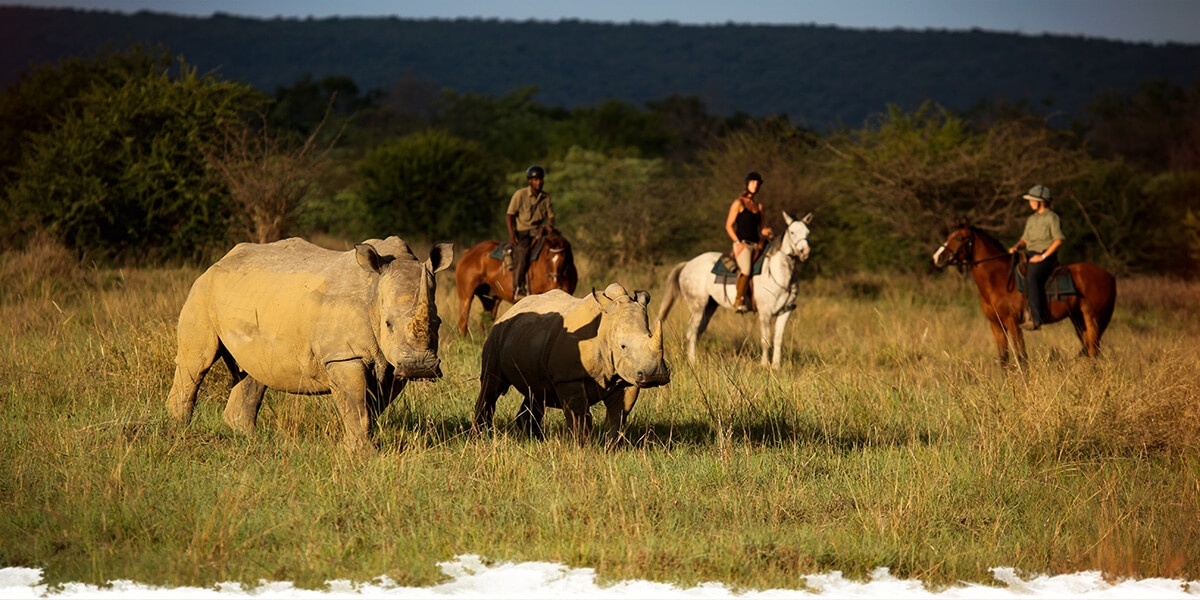
Save the Waterberg Rhino
"To every person out there
who has had the unforgettable experience of encountering a rhino. To each of
you out there who has always longed to do so. To anyone who calls themselves a
lover of nature, a supporter of conservation, a human being, let’s stand
together as a nation proud and DO SOMETHING.” -Elise Daffue
Horseback riding safaris are an incredible opportunity
to get close to the African wildlife and experience the bush in an eco-friendly
way. Ant's Lodge riding safari is not only notorious for catering
families and individuals with a luxurious riding holiday in the African bush,
but it is also dedicated to protecting Africa's incredible wildlife. Rhinos
have become an iconic figure, their majestic nature and appearance is surely breathtaking, but their hard fight against extinction is
becoming more and more critical each day. At Ant's, in the Waterberg (north of
the country) this species is highly protected and riders are able to admire rhinos
from up close. However, could you imagine not ever seeing them walk this world
again?
Save the Waterberg Rhino
Save the Waterberg Rhino was founded by Ant and Tessa Baber, Victoria Crake
and Gustav Collins. Ant and Tessa had owned a reserve in the Waterberg in South
Africa for many years, yet it was not until December 2011, when they spotted
one of their white rhino cows poached together with her 11-month old baby, that
they decided to take action. The horrific sight devastated them and security
around the rhinos was reinforced. At the end of July 2012 another of their
white rhino cows was poached, but this time her 18-month baby managed a lucky escape.
The Babers quickly realized that reinforcing security was not a lasting
solution and that more needed to be done. The rhino calf survivor inspired
them to go the extra mile and this is how the 'Save the Waterberg Rhino' foundation was
born.
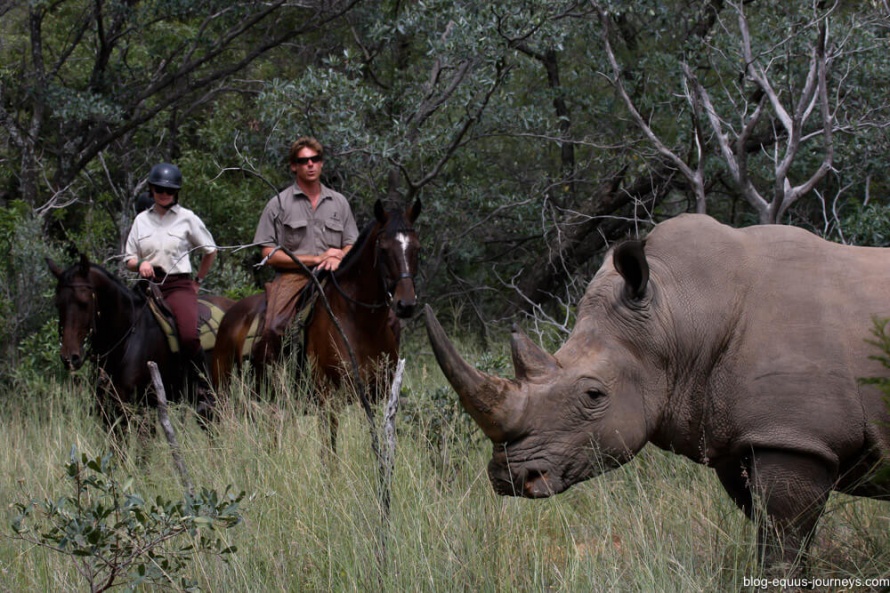
There are about 19,000 white rhinos in South Africa and we estimate that 20-25%
of these numbers are in private ownership. With the increasing demand for rhino
horns in the Asian market, poaching has exploded on the African continent and
private rhino owners have come under pressure to protect these magnificent
creatures.
Owners have had to tackle this issue and have been facing
the battle against rhino poaching for years. Every day, they are playing the most
important role in rhino conservation, fighting for the future of the species.
However, the cost of protecting small populations of rhinos is enormous, and
ranges from $2,000-$28,000 annually per rhino. Save
the Waterberg Rhino has teamed up with The Waterberg Biosphere Reserve and
StopRhinoPoaching.com in the hope of raising funds to protect the rhinos in
private ownership around the Waterberg area. The team is composed of members of
the community, rhino owners, rhino specialist and security experts. Their
mission is to protect and conserve the rhino populations in the Waterberg
Biosphere area in order to preserve the natural environment and benefit local
communities through the enhancement of security, education and sustainable
social uplifting.
Facts
about rhinos
Rhino Populations
Worldwide, just five species of rhino remain. The
white and black rhinos are the only species left roaming the plains of Africa,
making up for 90% of the world's rhino population. These species are heading
rapidly towards extinction, and without appropriate action and education, we
cannot ensure their survival.
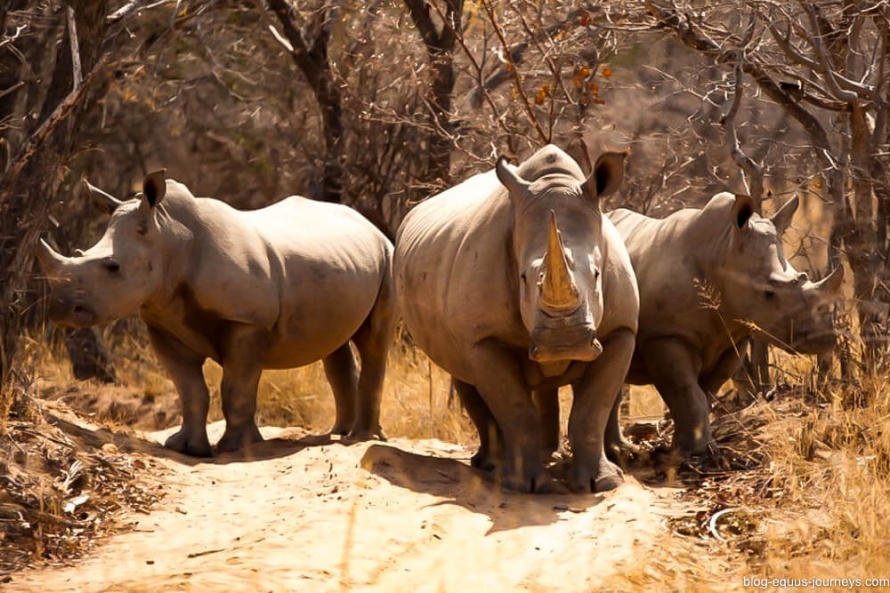
By the end of 2016, over 6,700 rhinos had been illegally poached in South
Africa. More than 1,000 rhinos are being poached each year, meaning at least 3
rhinos are possibly killed every day. The poaching slaughter is not just terrifying,
but it is also barbaric, with poachers often hacking off the horns while they
are still alive.
Rhino's Horn
Poaching has increased at an alarming rate over the
last few years due to an increasing demand on rhino's horn in East Asia and the
Middle East market. Traditional Chinese medicine beliefs of its curative powers
is the main reason the horns are so valuable. On the other hand, the horn is
also seen as a symbol of power in some cultures, which means it is only being
used as an ornament to depict status in society.
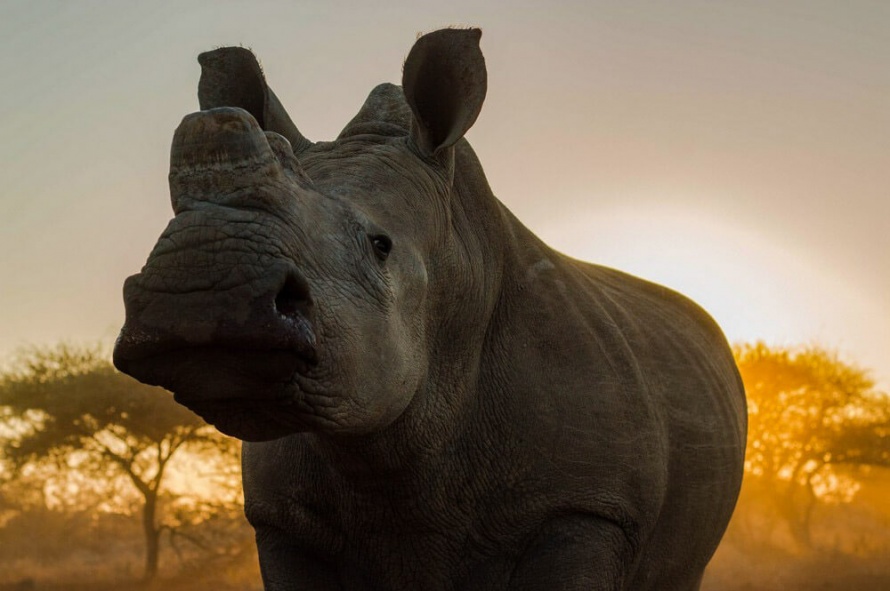
The rhino horn is made up of keratin, the protein
found in hair and fingernails. In the centre of the horn there are dense mineral
deposits of calcium and melanin, which is actually very similar in structure to
horse hooves! Although the horn contains a great amount of Keratin, there is no
scientific proof that rhino's horn mineral composition is an effective cure for
life-threatening illnesses, like traditional Chinese medicine likes to claim.
In other words, the Rhino's horn "medical miracles" are just a
perception that has been in Asian tradition for thousands of years.
The
solutions
Every day we are getting closer to not seeing rhinos
ever again. But the solution to saving them can be as complex as the poaching
issue itself. A multi-faceted approach has been required to address the
socioeconomic challenges that surround this issue. Employment, education,
reduction of demand, law enforcement (international and government cooperation),
political will and cross-border support with neighbouring countries are just a
few of the components that are making a difference in the Rhinos survival.
Even though it seems like there is much to be done,
the Save the Waterberg Rhino foundation is already allocating resources. In the
last few years, the foundation has been able to achieve multiple goals thanks
to fundraisers and working in close conjunction with private reserves, rhino owners, APU's and the South African
National Parks.
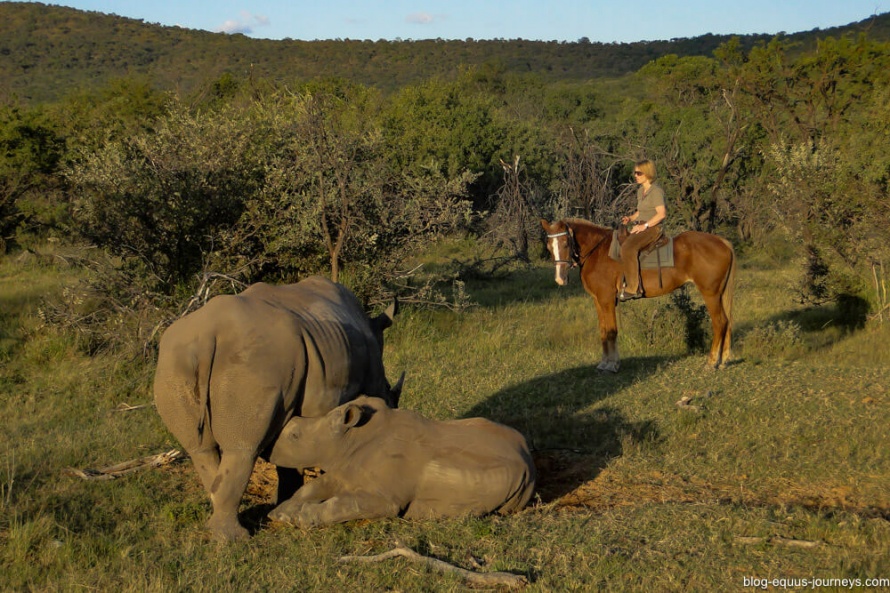
Through funding and sponsoring, the foundation has
managed to procure achievements such as a responsive trailer, high tech
equipment, areal patrols, a Rhino response team, security workshops,
environmental education programmes of rhino conservation, awareness programmes,
employment of staff, and many others. All of this progress has managed to make
the life of the rhino's more secure, but yet there is much more that can and
must be done in order to preserve these magnificent animals.
What can we do to help
Donations are the most effective way to help rhino owners
in the fight against poaching. Owners have been evaluating the problem year after
year and have determined a plan to direct funds effectively to generate the
greatest impact. However, there are other ways to help as well, and the first
and most important thing is to keep yourself informed. You can subscribe to the
Save the Waterberg Rhino newsletter to be constantly updated about the
poaching crisis.
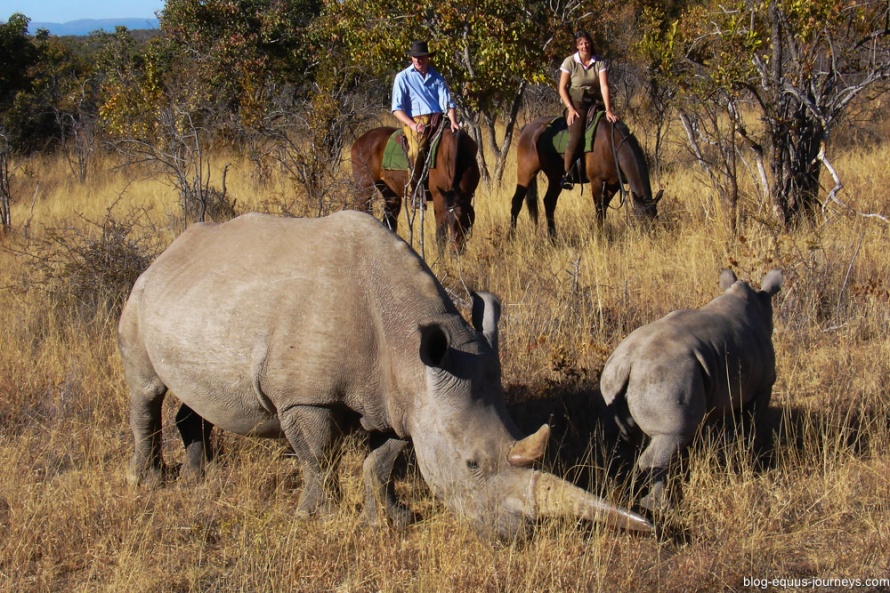
When on a riding holiday at Ant's Lodge, be
sure to ask your guide and host for more information. They will be happy to
speak to you about the issue and introduce you to some of the rhinos at the
reserve. When coming back home, don't forget about what you have learned and
seen, spread the word and inform others as well. Returning home with a small
booklet or poster and putting it up in the office or school can spark interest
in others and they might want to be part of the cause.
If you are ever lucky enough to spot a Rhino, just remember you might have been one of the
last few humans to have ever been in the presence of this creature. If we do
not act NOW, we could be looking at a future in which this iconic species is
wiped out.
More information:
For more information about Ant's Lodge, please visit us at Equus Journeys.
Make sure to contact us if you have any questions: info@equus-journeys.com / +44(0)1905388977
You might also enjoy reading:
For donations and further information regarding the cause visit: Save the Waterberg Rhino
